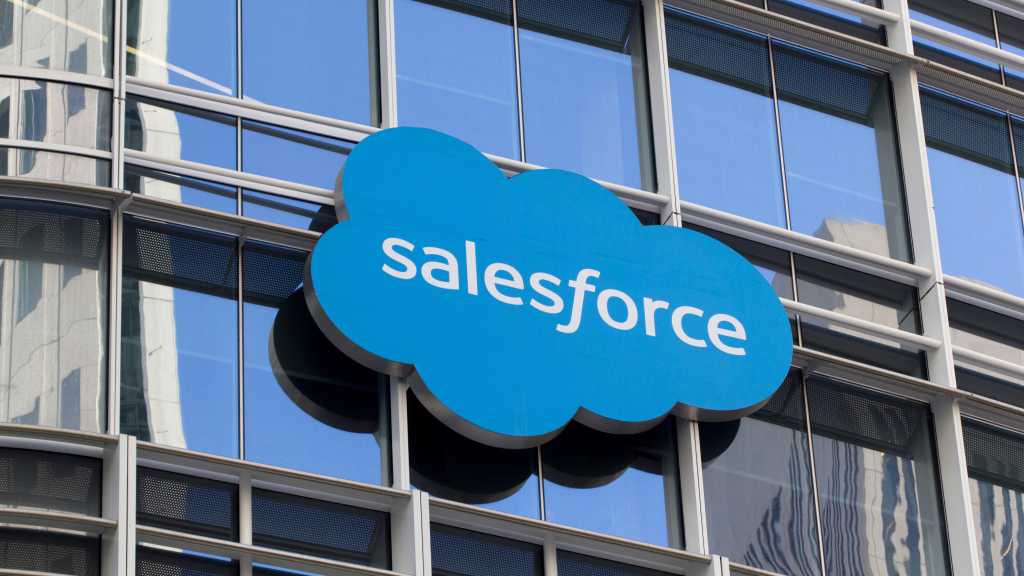Over the next five years, this investment will be used to establish an AI data center in Visakhapatnam, Andhra Pradesh, which will become Google's largest AI hub outside of the United States.
This $15 billion investment from Google is a significant moment for India's technology sector. It signifies a transformation that will redefine the country's position in the global AI landscape. The AI data center project in India is not just about constructing infrastructure; it aims to accelerate India's AI mission and establish the nation as a powerful player in artificial intelligence research and development.
The facility in Andhra Pradesh will initially have a capacity of 1GW, which will provide the immense computing power required to support advanced AI technologies. This investment puts India in direct competition with established tech hubs around the world, granting the country unprecedented access to state-of-the-art AI infrastructure and cloud computing capabilities.
The Rise of AI and Data Centers in India
India's digital transformation has created an unprecedented demand for robust data infrastructure. AI technologies require massive computing power—we're talking about processing billions of data points simultaneously, training complex machine learning models, and delivering real-time insights across millions of users. You can't run sophisticated AI applications on traditional infrastructure; you need specialized facilities designed to handle these enormous computational loads.
Explosive Growth of AI Data Center Investment in India
The AI data center investment India market has experienced explosive growth over the past three years. Major tech companies have collectively poured over $30 billion into building and expanding data center capacity across the country. This surge reflects India's position as the world's most populous nation with nearly one billion internet users a market too significant for any tech giant to ignore.
Google's Andhra Pradesh Facility : A Testament to India's Data Center Boom
Google's Andhra Pradesh facility exemplifies this trend with its ambitious 1GW initial capacity plan. To put this in perspective, 1 gigawatt can power approximately 750,000 homes. This scale of energy consumption directly correlates to the processing power needed for advanced AI operations, from natural language processing to computer vision applications.
Strategic Priority : Cloud Computing Investments in India
Cloud computing investments India has become a strategic priority for both international corporations and domestic players. The country's digital economy is projected to reach $1 trillion by 2030, driven largely by cloud adoption across sectors like healthcare, finance, education, and e-commerce. Data centers serve as the backbone of this digital revolution, enabling businesses to scale operations without building their own expensive infrastructure.
Why Visakhapatnam was Chosen for Google's AI Hub
Google's decision to choose Visakhapatnam as its AI hub wasn't random. The coastal city in Andhra Pradesh has several advantages that make it a perfect spot for this huge infrastructure project.
Strategic Location and Infrastructure
The city's location near the Bay of Bengal makes it an ideal site for the international submarine gateway project, which is a crucial part of Google's infrastructure plans. This undersea cable system will greatly improve data transmission between India and other countries, making it faster and more efficient for AI tasks that require immediate processing.
Partnerships with Indian Corporates
Google's partnerships with major Indian companies also influenced this decision :
- Adani Group brings extensive experience in large-scale infrastructure development and port operations
- Airtel contributes its telecommunications expertise and existing network infrastructure
- Both partners provide local market knowledge and regulatory navigation capabilities
These collaborations ensure that Google has the necessary resources and support to navigate the Indian business landscape effectively.
Advantages of Undersea Cables
The submarine cable gateway will significantly benefit the operations of the facility. Unlike traditional data centers that rely on land-based fiber connections, undersea cables offer greater bandwidth and reliability for transferring data internationally. This means that Google can connect its Indian operations seamlessly with other data centers in Asia, Europe, and North America.
Supporting Factors in Visakhapatnam
Visakhapatnam already has an established industrial base, a skilled workforce, and support from the state government creating an environment suitable for such a large project. Additionally, the city's power infrastructure and cooling requirements meet Google's technical specifications for the facility, which is expected to have a capacity of 1GW.

Economic Impact : Job Creation and Market Growth
When Google announces record $15 billion investment in AI data center in India, the numbers tell a compelling story about economic transformation. The initial $10 billion investment jobs estimate projected approximately 188,000 new employment opportunities across various sectors—from construction and facility management to specialized AI engineering and cloud computing roles.
Job creation data center India statistics reveal a ripple effect extending far beyond direct employment :
- Direct employment : 50,000+ positions in data center operations, maintenance, and technical support
- Indirect opportunities : 138,000+ jobs in supporting industries including construction, logistics, security services, and local businesses
- Specialized roles : High-paying positions for AI researchers, machine learning engineers, and cloud architects
The economic windfall for Andhra Pradesh translates into substantial GDP growth, with projections indicating a 2-3% boost to the state's economy over the next five years. You'll see increased tax revenues funding infrastructure improvements and educational programs designed to create a sustainable talent pipeline for the tech sector.
The competitive dynamics intensify as Microsoft's $3.2 billion commitment and Amazon's $12.7 billion investment in Indian data centers create a three-way race for market dominance. This competition drives innovation, pushes service quality improvements, and ultimately benefits Indian businesses and consumers through better pricing and expanded cloud service offerings.
Navigating Geopolitical Dynamics : US-India Tech Relations and Trade Policies
Google's $15 billion commitment arrives at a complex moment in India-US trade tensions. The diplomatic landscape presents unique challenges for American tech companies expanding their footprint in India. Trade disputes between the two nations have created uncertainty around technology imports and cross-border data flows, requiring careful strategic planning from companies like Google.
You need to understand the delicate balance Google must strike. While the US government pushes for favorable trade terms, India maintains its position on protecting domestic interests. The Indian government technology policy framework emphasizes data localization and regulatory compliance, which directly impacts how foreign tech giants structure their operations.
The Indian government has actively reassured international investors about maintaining a business-friendly environment. This stance comes despite vocal domestic movements calling for boycotts of foreign products and services. Government officials have consistently emphasized that India welcomes foreign investment in technology infrastructure, viewing it as essential for the country's digital transformation goals.
Key policy considerations include :
- Data sovereignty requirements that mandate local storage of certain data types
- Tax structures affecting technology service providers
- Import duties on specialized data center equipment
- Regulatory compliance standards for cloud service operations
Google's investment demonstrates confidence in navigating these geopolitical waters. The company has shown willingness to adapt its business model to align with Indian regulatory expectations while maintaining operational efficiency. This approach sets a precedent for how American tech companies can successfully expand in markets with complex political dynamics.
Collaborations with Indian Corporates : Adani Group and Airtel Partnerships
Google's $15 billion investment relies heavily on strategic partnerships with India's corporate giants. The partnership between Google and Gautam Adani focuses on developing critical infrastructure, with Adani Group supplying land, power, and logistics support for the Visakhapatnam data center campus. Adani's existing energy infrastructure and port facilities in the area align perfectly with Google's massive power requirements the initial 1GW capacity needs a steady supply of electricity that Adani's renewable energy portfolio can provide.
The collaboration between Airtel and Google goes beyond traditional telecommunications support. Bharti Airtel contributes its extensive fiber optic network and expertise in connectivity solutions. The highlight of this partnership is the international submarine cable gateway project, which will significantly improve India's global data connectivity. This undersea infrastructure connects India to major internet hubs across Asia and beyond, reducing latency and increasing bandwidth capacity for the AI data center's operations.
These partnerships reflect a strategic approach to entering the market :
- Local knowledge : Indian partners are familiar with regulatory frameworks and regional business dynamics
- Infrastructure acceleration : Utilizing existing networks shortens deployment timelines by years
- Risk reduction : Shared investment spreads financial exposure across multiple stakeholders
- Political influence : Collaborating with Indian billionaires shows commitment to local economic development
The submarine gateway project alone positions India as a regional data hub, with implications extending far beyond Google's immediate needs.

Alphabet Inc's Broader Vision in India's Digital Ecosystem
When Google announces record $15 billion investment in AI data center in India, you're witnessing a calculated move that extends far beyond infrastructure. The Alphabet Inc India strategy positions the country as a cornerstone of the company's global operations, particularly for its most successful consumer platforms.
India represents the largest user base for YouTube outside the United States, with hundreds of millions of active users consuming content daily. Android dominates the smartphone market with over 95% market share, making the YouTube Android India market an indispensable revenue stream for Alphabet. This massive AI data center investment directly supports the computational demands of these platforms, enabling :
- Enhanced content recommendation algorithms for YouTube's Indian audience
- Improved localization capabilities across 22 official languages
- Faster processing of user-generated content and real-time analytics
- Better infrastructure for Google Cloud services targeting Indian enterprises
You need to understand that Alphabet faces significant challenges in this market. Local competitors like JioCinema and Hotstar challenge YouTube's dominance in video streaming, while indigenous payment systems compete with Google Pay. The company also navigates a complex regulatory environment, including an ongoing AI policy lawsuit from prominent Bollywood figures questioning content moderation practices.
The Visakhapatnam data center addresses these challenges head-on by reducing latency, improving service quality, and demonstrating Alphabet's commitment to building technology infrastructure that serves India's unique digital ecosystem requirements.
Competition Among US Tech Giants in India's Data Infrastructure Space
Google's $15 billion commitment doesn't exist in isolation. Microsoft Amazon investments India have created a fiercely competitive landscape that's reshaping the country's digital infrastructure at an unprecedented pace.
Microsoft's Investment Strategy
Microsoft announced a $2.9 billion investment in cloud and AI infrastructure across India in 2024, focusing on expanding its Azure cloud services and establishing new data center regions. The tech giant has strategically positioned facilities in Mumbai, Pune, and Hyderabad, targeting enterprise clients and government contracts.
Amazon's Response
Amazon Web Services (AWS) has matched this intensity with its own multi-billion-dollar expansion, launching multiple availability zones and committing substantial resources to capture India's nearly one billion internet users.
The Impact of Competition
This three-way race has created a unique dynamic :
- Pricing wars that benefit Indian businesses seeking affordable cloud solutions
- Accelerated innovation in AI and machine learning capabilities tailored for local markets
- Enhanced service offerings including region-specific data residency options
- Aggressive talent acquisition from India's vast pool of engineering graduates
The competition extends beyond infrastructure capacity. You're seeing each company forge strategic partnerships with Indian corporations, develop localized AI models, and invest in training programs to build cloud expertise. Microsoft's collaboration with Indian IT services companies, Amazon's focus on small and medium enterprises, and Google's partnerships with Adani and Airtel represent different approaches to the same goal : dominating India's $5 billion cloud services market.

Future Outlook : Transforming India's Technology Landscape
Google's $15 billion commitment represents a significant turning point for India's technology infrastructure, paving the way for an unprecedented digital transformation. The AI data center will act as a driving force, propelling the growth of India's digital economy and positioning it to compete globally.
A Catalyst for Change
The impact of this investment will reach far beyond the borders of Andhra Pradesh. It is expected to set off a chain reaction, with other states vying to attract similar large-scale projects. The success of Visakhapatnam's AI hub will serve as a model for establishing advanced data center infrastructure in various regions of India.
How India's Digital Economy Will Benefit
India's digital economy stands to gain in several ways :
- Enhanced AI capabilities enabling local startups and enterprises to develop sophisticated machine learning applications without relying on foreign cloud infrastructure
- Reduced latency for AI services, improving user experiences for India's nearly one billion internet users
- Knowledge transfer as Google's technical expertise permeates the local tech ecosystem through training programs and partnerships
- Infrastructure standardization raising the bar for data center operations nationwide
The Road Ahead
The next decade is likely to witness exponential growth in India's cloud computing sector. We can anticipate a future where Indian companies have the ability to process large datasets locally, create innovative AI solutions, and directly compete with global technology giants. The 1GW capacity planned for the Visakhapatnam campus is merely the starting point—subsequent phases of expansion could significantly increase this capacity in response to the rising demand for AI computing power.
Conclusion
Google's announcement of a record $15 billion investment in an AI data center in India is a significant milestone for the country's technological evolution. This project goes beyond just building infrastructure—it signifies India's potential for growth in the global tech industry.
The impact of this investment extends beyond just Andhra Pradesh. It lays the groundwork for India to become a leader in areas such as AI innovation, cloud computing, and digital services. The effects will be felt throughout the entire economy, creating jobs, developing skills, supporting startups, and transforming enterprises.
The competition among major tech companies to secure India's digital future has heated up. Microsoft, Amazon, and Google are all investing heavily in your country's potential. This rivalry works in your favor as an Indian consumer, developer, entrepreneur, and innovator.
Stay informed about this transformative journey. The decisions made today in Visakhapatnam will shape India's technology landscape for decades. Follow the developments, understand the implications, and position yourself to benefit from this digital revolution unfolding before your eyes.
FAQs (Frequently Asked Questions)
What is the significance of Google's $15 billion investment in an AI data center in India ?
Google's record $15 billion investment in an AI data center in India is set to revolutionize the country's technology infrastructure, positioning India as a global leader in AI research and cloud computing capacity.
Why was Visakhapatnam chosen as the location for Google's new AI hub ?
Visakhapatnam was selected due to its strategic location, including its role in the international submarine gateway project, and collaborations with Indian companies like Adani Group and Airtel that enhance infrastructure development and connectivity essential for the AI hub's operations.
How will Google's investment impact job creation and economic growth in India ?
The investment is expected to create approximately 188,000 jobs, significantly contributing to the economic development of Andhra Pradesh and strengthening India's tech ecosystem amidst growing competition among US tech giants like Microsoft and Amazon.
What are the geopolitical factors affecting Google's expansion of AI data centers in India ?
Google must navigate ongoing US-India trade tensions affecting technology imports while operating within a business-friendly environment supported by the Indian government's policies toward foreign tech companies, despite calls for boycotting foreign products.
How are collaborations with Indian corporates like Adani Group and Airtel enhancing Google's AI data center project ?
Partnerships with Adani Group and Airtel support critical infrastructure projects such as the submarine cable gateway, which are strategically important for scaling data center operations and improving network infrastructure essential for Google's AI hub.
How does Google's investment align with Alphabet Inc's broader vision for India's digital ecosystem ?
This $15 billion investment aligns with Alphabet Inc’s long-term strategy to strengthen its presence in India’s digital market, supporting services like YouTube and Android while addressing competitive challenges from local players and enhancing India's technology landscape.




